Spironolactone: The Acne Treatment You Haven’t Tried Yet
Acne is a skin condition common among millions of people worldwide. While many treatments are available for acne, not all of them work for everyone. However, there is a surprising acne treatment that you may have yet to hear of—spironolactone.
Spironolactone is a diuretic medicine primarily used to treat high blood pressure and heart attacks. It blocks the effects of the hormone aldosterone, which can lead to fluid retention and high blood pressure.
However, spironolactone also has anti-androgenic properties. These properties can block the effects of androgens, a hormone that contributes to acne. Let’s explore spironolactone and how it treats acne.
How Spironolactone Works for Acne
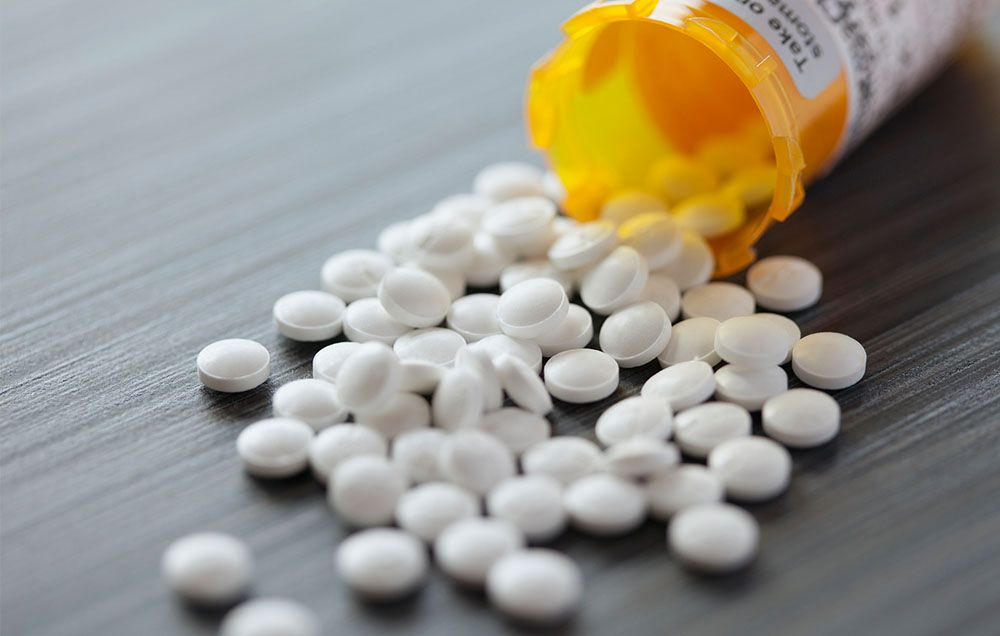
Photo credit: Getty Images
Spironolactone can be an effective treatment for acne, particularly in women. Hormonal imbalances often trigger acne breakouts, particularly an excess of androgens, which are male hormones also present in women.
Spironolactone blocks the effects of androgens, which can reduce the amount of sebum (oil) production in the skin. Excess sebum production is one key factor contributing to acne development. Spironolactone can help prevent acne from forming by reducing sebum production.
It can also reduce the redness and inflammation associated with acne. Spironolactone can be an effective treatment option for those with this skin condition. It targets both the hormonal imbalances and the inflammation that comes with acne.
You may also like: Best face wash for acne
Your dermatologist may prescribe topical treatments such as anti-acne washes and creams. However, this depends on the severity of the acne, your needs, and your treatment goals.
For those who want more improvement in their acne, spironolactone may be ideal as an addition to an existing acne treatment regimen.
Spironolactone Dosage for Acne
Spironolactone is typically prescribed at low doses for acne treatment, usually around 50 to 200 mg daily. This potassium-sparing diuretic must be taken as prescribed by a healthcare provider. It can have side effects and may not be suitable for everyone.
Depending on your situation, your physician will determine the duration of spironolactone treatment and the best time for your next dose. Though it may take a few weeks to see the full benefits, treatment duration may vary depending on your response to the medication.
If you experience spironolactone side effects, discuss with your healthcare provider to stop the medication. However, your healthcare provider may consider extending the duration of your treatment if you are responding well to the medication.
Potential Side Effects of Spironolactone
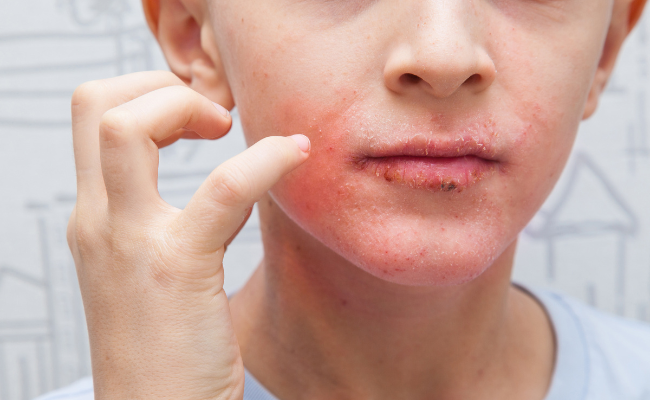
- Increased urination
- Low blood pressure
- Irregular menstrual cycles
- Breast tenderness or enlargement
- Increased potassium levels
While spironolactone is generally considered safe and tolerable, serious side effects may occur in rare cases, and these require medical attention.
Allergic reactions
In rare cases, spironolactone can cause allergic reactions. Symptoms of an allergic reaction include trouble breathing, hives, or swelling of the face, tongue, lips, or throat.
Hyperkalemia
Elevated blood potassium levels can result from spironolactone use, posing a potential risk, especially for individuals with kidney or other health issues. Be on the lookout for symptoms such as muscle weakness, a slowed heart rate, or a tingling sensation in the hands and feet.
Severe dizziness or fainting
While dizziness is a common side effect of spironolactone, severe dizziness or fainting may indicate low blood pressure.
Liver problems
Spironolactone can cause liver problems, but only rarely. Symptoms include yellowing of the eyes or skin, dark urine, or pain in the upper right side of the abdomen. If you experience these symptoms, contact your healthcare provider right away.
Blood clotting problems
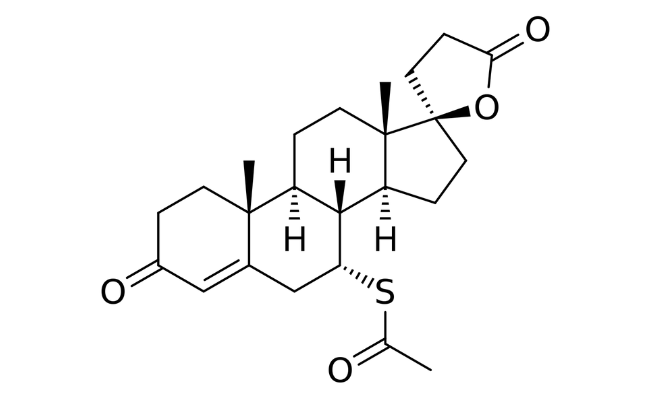
You may also like: Chest Acne Begone: Proven Solutions for Clear Skin
Precautions to Consider Before Use
Before starting spironolactone, take these precautions to ensure its safe and effective use:
- Disclose any medical conditions to your physician, especially liver or kidney disease, electrolyte imbalances, or hormone-related conditions.
- Inform your physician about any medications you take. This includes nonprescription medications, supplements, and herbal products. Some medicines can interact with spironolactone and may increase the risk of side effects.
- If you’re pregnant or looking to conceive, discuss the risks and benefits of spironolactone with your healthcare provider. Spironolactone may cause birth defects in a developing fetus.
- Spironolactone can increase potassium levels in the blood. Avoid these foods or supplements while taking this medication. Your physician may recommend monitoring your potassium levels in the long term.
- Spironolactone can cause dizziness, primarily upon starting. Avoid driving or operating heavy machinery until you know how the medication affects you.
- Women taking spironolactone for acne should use a reliable form of contraception. Spironolactone can cause hormonal changes that may affect the menstrual cycle and increase the risk of pregnancy.
Spironolactone for Hormonal Acne
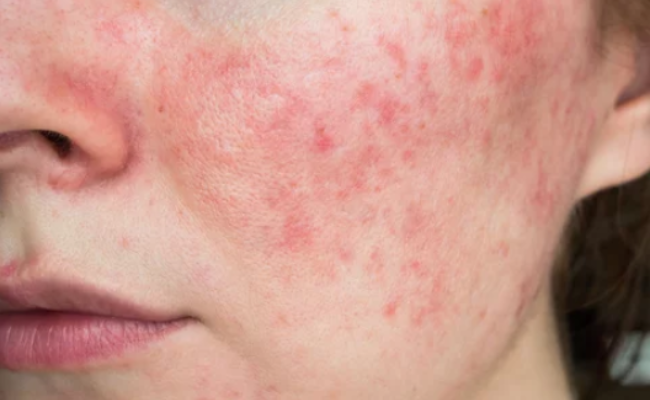
Spironolactone is effective for hormonal acne because it blocks the androgen receptors in the skin. This reduces the effects of androgens and oil production, which can clog skin pores and lead to acne. Additionally, spironolactone can reduce inflammation, a critical factor in acne development.
Other treatments for hormonal acne may include topical retinoids, which can help free pores and reduce inflammation. Oral medication can regulate hormones and reduce the effects of androgens.
Working with a board-certified dermatologist is essential to determine the best treatment approach for hormonal acne. Treatment effectiveness depends on the acne’s severity and individual factors like age, gender, and medical history.
Additionally, lifestyle factors such as stress management, exercise, and a healthy diet can also play a role in managing hormonal acne.
Spironolactone Before and After Real Results from Users
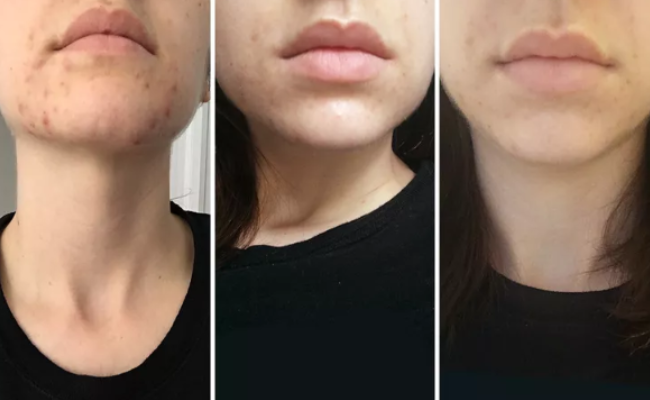
Photo credit: Erin Lukas
Spironolactone has varying effects on people and is sometimes prescribed over the counter for treating acne. However, users have largely reported positive outcomes during their treatments, showing their effectiveness.
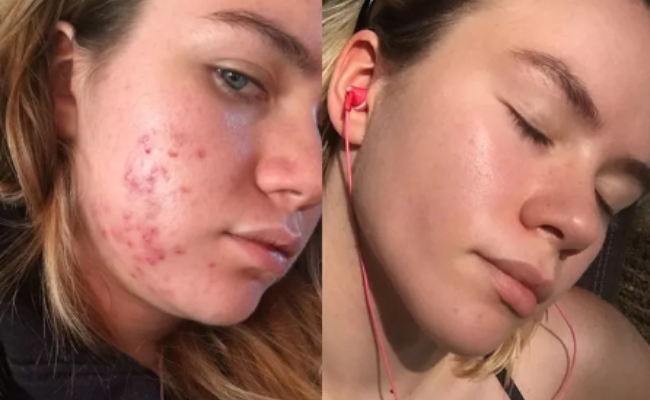
Photo credit: Instagram | @maguaaa67
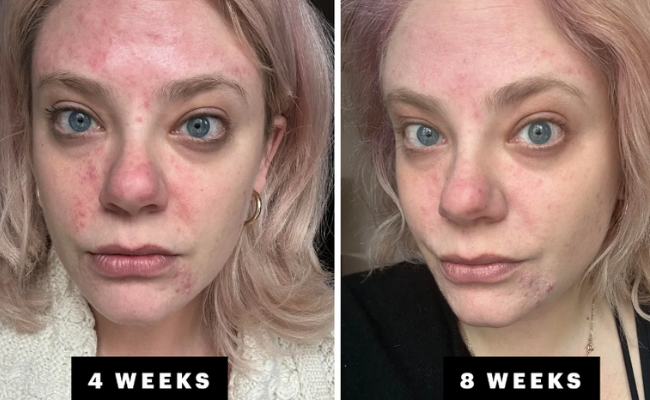
Photo credit: Kara Nesvig
Conclusion
If you haven’t explored spironolactone as an acne treatment, now may be the time to consider this promising option, especially for those dealing with hormonal acne. While generally safe, it’s important to remember that some side effects may occur.
Remember to take it cautiously, especially for individuals with kidney problems or liver disease or taking other medications. If you are struggling with acne and haven’t seen results with other treatments, consult your physician about spironolactone before you begin.

